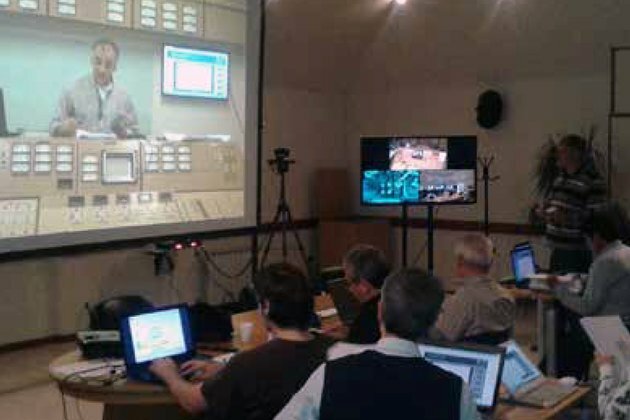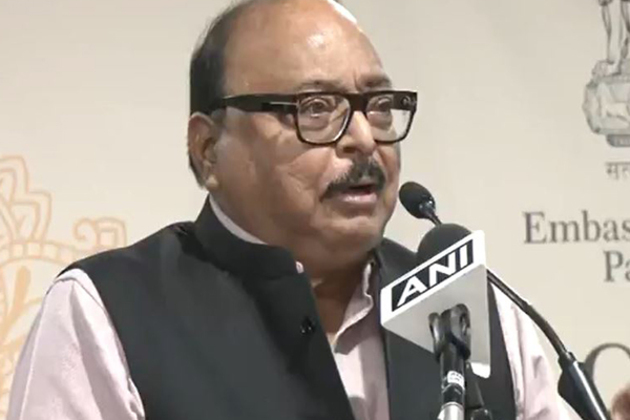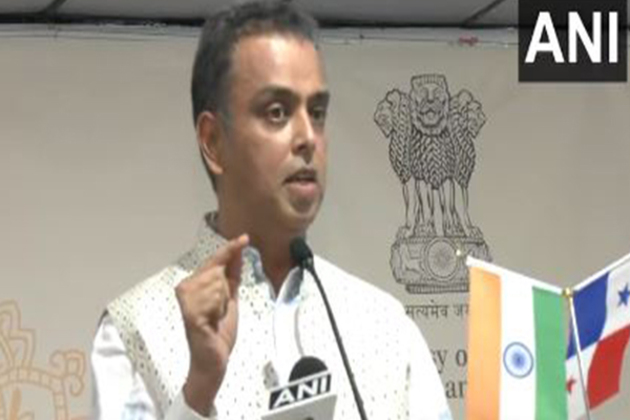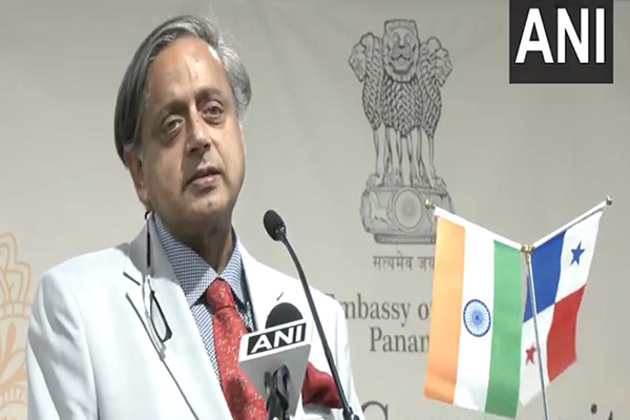Building Skills and Knowledge Using Research Reactors
International Atomic Energy Agency
10 Jul 2020, 23:37 GMT+10

Research reactors are an important resource for training nuclear professionals worldwide, but only around a quarter of countries have their own research reactors.
"Not having a research reactor doesn't need to limit a country's options when it comes to educating and training nuclear professionals. There is now a variety of possibilities," said Christophe Xerri, Director of the IAEA's Division of Nuclear Fuel Cycle and Waste Technology.
To help ensure that students and nuclear professionals can get the education and training they need, whether their country has a research reactor or not, the IAEA supports international training courses, both on-the-ground and remotely, as well as facilitates collaboration between countries to increase access to research reactors.
A research reactor is a nuclear reactor that, instead of generating power, is primarily used to produce neutrons. Although research reactors are mainly used for research and applications, they also play a major part in the education and training of budding and established professionals who work in nuclear facilities, radiation protection and nuclear regulation.
"Research reactors offer a hands-on way to gain a deeper understanding of the fundamental principles behind reactor operation, and, given how they are designed, they can be used to safely simulate different types of reactor conditions, which is not possible with a nuclear power reactor," said David Sears, a senior safety officer at the IAEA.
Connecting online
For students of physics and nuclear engineering, experiments using a research reactor are a key learning tool. However, being physically present at a research reactor is not always possible, especially when a student's country does not have a research reactor. This gap is now being bridged by alternatives such as the IAEA's Internet Reactor Laboratory (IRL) project. Established in 2015, the IRL offers a cost-effective, practical component to the training of both students and professionals by connecting classrooms anywhere in the world to classrooms associated with operating research reactors via the Internet. This allows the participants to engage in live reactor physics experiments and learn more about reactor operations.
"When I got involved in the IRL in 2018, I had already learned a lot about reactors, but I had never seen one before," said Jose David Creme Angel Bello, who is now a professor and researcher at the Atomic and Molecular Physics Department at the Higher Institute of Technologies and Applied Sciences in Cuba. "The IRL project was an amazing experience for my training as a nuclear engineer because we don't have a nuclear reactor in Cuba, so this allowed me to see and practice what we had studied in theory, to interact with a nuclear reactor in real time and to do experiments. It helped to prepare me for my career."
Creme was a nuclear engineering student when he benefited from the IRL project set up through an agreement between the IAEA and Argentina's National Atomic Energy Commission (CNEA). The agreement was signed in 2013 and formed the basis for the IRL project in Latin America, which was one of the first IRL projects, in addition to an IRL project with France. Although the IRL project with France ended with the host reactor's permanent shutdown, IRL projects have since expanded into Africa, Asia and the Pacific and Europe, with host reactors in the Czech Republic, the Republic of Korea and Morocco, and new hosts are now being considered in other parts of Europe and Southeast Asia.
On-the-ground training
While the IRL offers remote access to education using research reactors, on-the-ground, face-to-face training courses organized by the IAEA continue to offer an important avenue for building skills, knowledge and networks. For decades, the IAEA has supported and coordinated training for hundreds of students, young professionals and established specialists. These courses cover topics such as operation and maintenance, regulatory safety inspections, nuclear security and physical protection and application-specific uses, such as radioisotope production for medicine and materials testing for industry.
"It's an invaluable experience to visit a research reactor and perform some experiments and feel what it's like to operate a research reactor," said Luka Snoj, a reactor physicist at Slovenia's Jozef Stefan Institute, who is also involved in an IAEA group fellowship training course called the Eastern European Research Reactor Initiative (EERRI). This initiative involves a six-week course for young professionals that focuses on all aspects of research reactors.
"Many EERRI course attendees use their experience and contacts from these kinds of courses to go back to their countries and become successful scientists and engineers. In some cases, they become leading nuclear experts in their countries," Snoj said.
"For us as a host, the EERRI has been an important way to increase the international visibility of our reactor and has allowed us to make contacts in the field for long-term collaboration, scientific visits and training." The EERRI is one of several IAEA supported activities, with others including regional courses and research reactor schools in Africa, Asia and the Pacific and Latin America.
For more advanced training, as well as to facilitate wider access to research reactors for scientific work, the IAEA launched the IAEA-designated International Centre based on Research Reactor (ICERR) scheme in 2014. As part of the scheme, major research centres around the world volunteer to proactively offer international cooperation opportunities. For a country to access an ICERR, it must become an affiliate by signing a bilateral agreement with an ICERR. The IAEA facilitates this process by, for example, sharing information on the capabilities offered by ICERRs.
"The ICERR scheme plays an important role not only in training operators but also in facilitating access to the research reactors that are best suited to specific types of experiments," Xerri said. There are ICERRs in Belgium, France, the Republic of Korea and Russia, and two in the USA.
 Share
Share
 Tweet
Tweet
 Share
Share
 Flip
Flip
 Email
Email
Watch latest videos
Subscribe and Follow
Get a daily dose of Caribbean Herald news through our daily email, its complimentary and keeps you fully up to date with world and business news as well.
News RELEASES
Publish news of your business, community or sports group, personnel appointments, major event and more by submitting a news release to Caribbean Herald.
More InformationBusiness
SectionEconomic data gives welcome relief to Wall Street
NEW YORK, New York - Strong economic data jump-started U.S. stocks and the dollar Tuesday, a welcome reprieve after weeks of pressure...
PepsiCo cleared in FTC case over Walmart discounts
NEW YORK CITY, New York: This week, the U.S. Federal Trade Commission (FTC) dropped its lawsuit against PepsiCo, which had accused...
Builder discounts drive sales spike, but housing outlook wary
WASHINGTON, D.C.: New single-family home sales in the U.S. rose sharply in April to their highest level in over three years as builders...
CEO says health push weakened Nestle, vows return to F&B roots
VEVEY, Switzerland: Nestle is realigning its focus on its core food and beverage operations after expanding into areas like health...
Ford sues California law firms over alleged Lemon Law fee fraud
DEARBORN, Michigan: Ford Motor Company has filed a lawsuit against several California lawyers and law firms, accusing them of cheating...
US drug launch prices double in four years, Reuters finds
BRUSSELS, Belgium: U.S. drugmakers are charging significantly more for new treatments, particularly those targeting rare diseases,...
Latin America
Section"If such acts happen again, will not listen to anyone and retaliate accordingly": All-party delegation member Sarfaraz Ahmad
Panama City [Panama], May 28 (ANI): JMM MP Sarfaraz Ahmad, who is part of the all-party delegation led by Congress MP Shashi Tharoor,...
All Party-delegation led by Shashi Tharoor visits Indian Cultural Centre in Panama
Panama City [Panama], May 28 (ANI): The Multiparty delegation led by Congress MP Shashi Taharoor visited the Indian Cultural Centre...
Party-delegation led by Shashi Tharoor visits Indian Cultural Centre in Panama
Panama City [Panama], May 28 (ANI): The Multiparty delegation led by Congress MP Shashi Taharoor visited the Indian Cultural Centre...
All-party delegation: MP Milind Deora reaffirms India's firm stance on countering terrorism
Panama City [Panama], May 28 (ANI): Shiv Sena MP Milind Deora, who is part of the delegation led by Congress MP Shashi Tharoor, emphasised...
"Our desire to be left alone not reciprocated by other side" Shashi Tharoor slams Pakistan for promoting terrorism
Panama City [Panama], May 28 (ANI): Congress MP Shashi Tharoor, who is leading a delegation to Panama, on Tuesday (local time) slammed...
"We want to stand with India in the campaign for peace": Panama Assembly President pledges support
Panama City [Panama], May 28 (ANI): Panama Assembly President, Dana Castaneda on Tuesday (local time) expressed solidarity with India...













